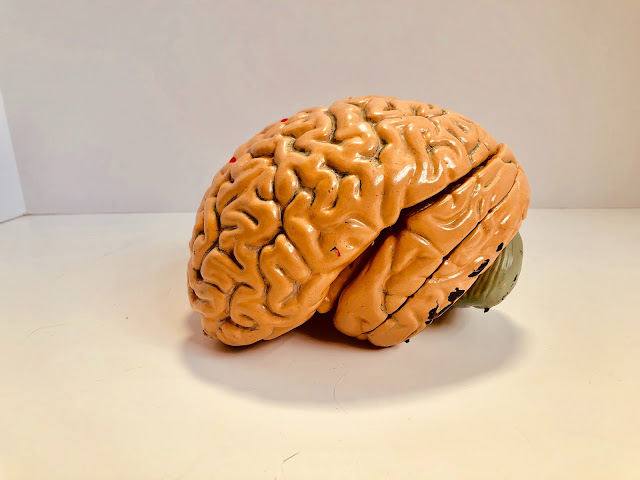Más sobre el máster de UX de Talent Garden - entrevista
Me entrevistaron hace poco en Talent Garden dentro de la serie que están realizando sobre sus profesores. Me parece que algunas de las preguntas eran bastante interesantes así que os dejo aquí tanto la entrevista publicada (en español) como mi versión original en inglés (soy así de friki :D).
Entrevista en español.
Abajo, entrevista en inglés:
Justo Hidalgo is the faculty member of the UX Design Bootcamp at the Talent Garden Innovation School in Madrid. In the following interview, he tells us a bit about himself and his life as a UX Designer.Faculty Stories: Interview with Justo Hidalgo
Describe your job
I am one of the founders of Quantified Reading, a company that creates products and services related to reading behavior analytics. That is, we try to learn how people select content, read and interact with it in order to help publishers, educational institutions and others to understand how texts are read and understood.
How did you get into this job?
I
am also the co-founder of another company in the publishing world, a
subscription service for ebooks and audiobooks. This allowed us to get a
full grasp at what publishers want and do not want, and also what we
think they needed.
At the same time, I've
been a part-time teacher for the last 21 years (ufff! :)) and
online/blended teacher for the last 6-7. And I've personally felt the
frustration of teaching tens or even hundreds of students without really
understanding what they were doing, as current Learning Management
Systems did not provide me with enough data about them. With all this in
mind, Quantified Reading was born as a way to tackle what for me is a
critical issue in society: improve reading comprehension and
understanding.
Which are the top 5 hard skills that someone in your industry should have?
If
by my industry we mean the creation of companies, products or services
in the cultural and entertainment industry, I would say:
- Books, content. It sounds obvious, but you must love books (or other types of media content) if you want to work in this industry. It is a baseline to start creating the products. In our case, only if you love to read you can create good reading-related products. Obvious but...
- Product Management. This is key in any industry where you want to build high-quality products. But in our industry, the value chain is extremely professionalized. All roles are quite well understood and therefore, when you want to create a product or service that changes or optimizes any given link in the chain, it affects many of the rest of the links. Product Management allows you to properly organize your product so all stakeholders are taken into account.
- Technology skills, programming. Obvious. Additionally, specific industry technologies or standards (from ePub to ONIX to Thema).
- Design, graphical and UX. This is also obvious but even more critical in an industry where for years we have mainly seen skeumorphic attempts that provided no additinal value to the past, paper-based options.
- Data. This is a huge part of our value proposition. Data must become a key part of the value chain in publishing and education. With no traumas and being very careful with the ethics/legal lines we must clear draw.
Which are the top 5 soft skills that someone in your industry should have?
- Resilience. This is a slow industry, where building a product or service that is accepted takes years.
- Smart relations. More than pure networking, here we need to establish long-term relationships.
- Partnerships. As mentioned above, the value chain is quite rigid. Only by having high quality partners one can aim to change the status quo.
- Storytelling. This should look obvious as well in culture and entertainment but it is not found as broadly as one could expect. People who are able to tell stories, to find the narrative in their proposals, have a clear advantage in a world where people... love stories!
- Flexibility. Due to the above mentioned rigidity of the value chain, your initial idea of how your product of service could work may not be true. You must be flexible enough to adapt it to whatever is needed.
When you start a new project, what are the steps you take?
I
am the kind of person that is always trying to find new possibilities.
Once I find one (or someone tells me theirs), I tend to be quite
analytic and pragmatic: does it make sense? Is there enough market for
this idea in the short-to-mid range? Are we able to do something with it
or it requires different roles that we may not be able to obtain in the
short time? Do I really want to work on it?
If
the outcome is positive, then I start thinking about the product
concept, which at the same time allows me to think of the product/market
fit (or, at least, of the hypothesis that need to be tested).
Very
quickly I get into the hypothesis validation stage + customer discovery
stage. Talking to potential customers and stakeholders in order to
understand if this makes any sense, if there is budget for it, etc.
What are the reasons you wanted to become part of the Talent Garden Innovation School Faculty and share your knowledge?
When
Alberto Vera told me about the Innovation School and what you were starting
to build w.r.t. UX and experience design, I was immediately in. I am
interested in the concept of bootcamp as a new way of teaching
professionals and my recommendations were accepted by the team, so all
in all I am happy to be part of a new way of teaching critical skills to
students... and learn during the process as well!!
How do you keep up with the latest trends?
I
can say the typical things: books, posts, twitter, talking to people...
and it's true. But the way I have to learn about new trends is...
preparing courses about them! This pushes me not only to be up to date
about the things I teach about, but also to reflect on the best way to
explain advanced concepts.
In your opinion: Which trends will change the future of business for good?
Ethics.
I love data, I love AI, I am intrigued by the potential value of
blockchain, AR or VR. But all of this is nothing if we do not apply
ethics from day one.
This is not easy. We see it in AI,
where Europe is quite based on data privacy but at the same time is
losing ground with US and China in the more technological aspects. But
we either find a way to have ethics as an integral part of innvation or
we will create new issues in society that might be really hard to solve.
Which are your future work challenges?
The
path we are walking now takes us to deep tech challenges (related to
math, statistics, machine learning and deep learning, but also data
visualization) and deep relations with our customers (as we want to be
their "data partners" and that requires a high level of trust). Being
able to manage both sides of the spectrum with a small and bootstrapped
team is tough but, at the same time, the only way to go I know.
Coming to an end: What is the best advice you can give to people that are interested in taking a career in your industry?
Cultural
and entertainment industries are exciting and wonderful if you enjoy
the craft and understand that it all takes time. You get to talk to
amazing professionals that have helped craft wonderful stories. But that
may not be open to outsiders at the beginning. So get used to this
world, little by little. Run as much as you can, but knowing you may
have to walk some times, or even wait for a while. Finding your place
may take a while but it is worth it!!!
Photo by Kelly Sikkema on Unsplash



Comments